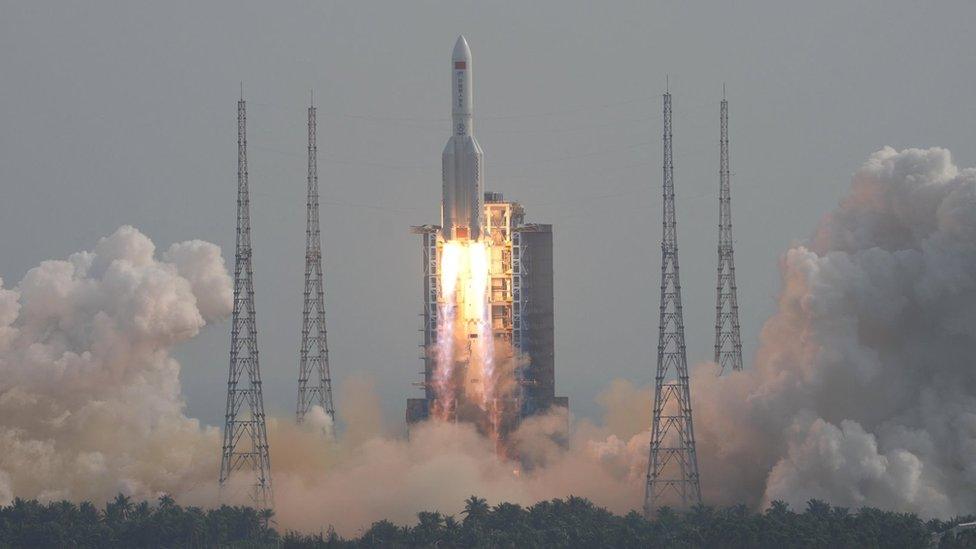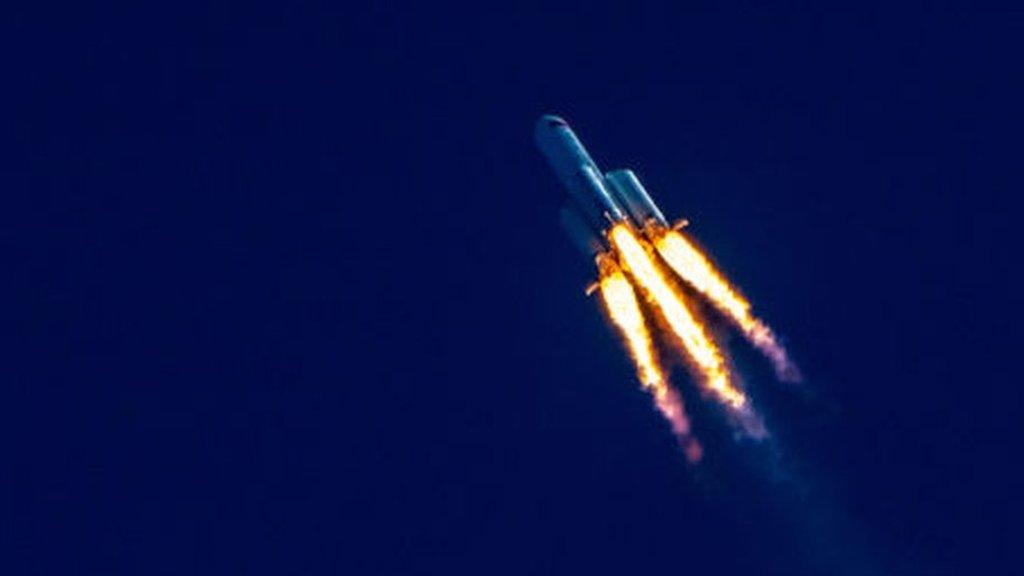Spain briefly closes airspace over risks from Chinese rocket debris
- Published

The rocket took off from China on Monday
Spain briefly closed parts of its airspace over risks posed by a Chinese rocket re-entering Earth's atmosphere.
Barcelona and Ibiza airports were among those impacted by the grounding, which lasted around 40 minutes on Friday.
The decision came after China sent its powerful Long March 5B rocket to deliver the final module of its Tiangong space station.
A remnant of the rocket made an uncontrolled re-entry, falling in the Pacific Ocean.
It was described as one of the largest objects to re-enter the atmosphere in recent years by the European Union Aviation Safety Agency.
In May 2020, properties in Ivory Coast were damaged when debris from the rocket's first launch came back down to Earth.
The European Union Space Surveillance and Tracking service had said on its website that the "statistical probability of an impact on the ground in populated areas" was low, with the remnant expected to land somewhere in the Atlantic Ocean.
However, it warned southern Italy, as well as northern Spain and Portugal were also in the trajectory.
As a precaution, Spain's national airspace agency established an 100km (62-mile) wide exclusion zone on either side of the falling rocket's orbit.
In the end, most of the rocket's remnants burnt up while the rest came down in the Pacific almost 1,000km southwest of Acapulco in Mexico.
In the past, America's space agency Nasa, external has called on China to design rockets to disintegrate into smaller pieces upon re-entry, as is the international norm.
- Published3 November 2022

- Published31 July 2022

- Published4 March 2022
